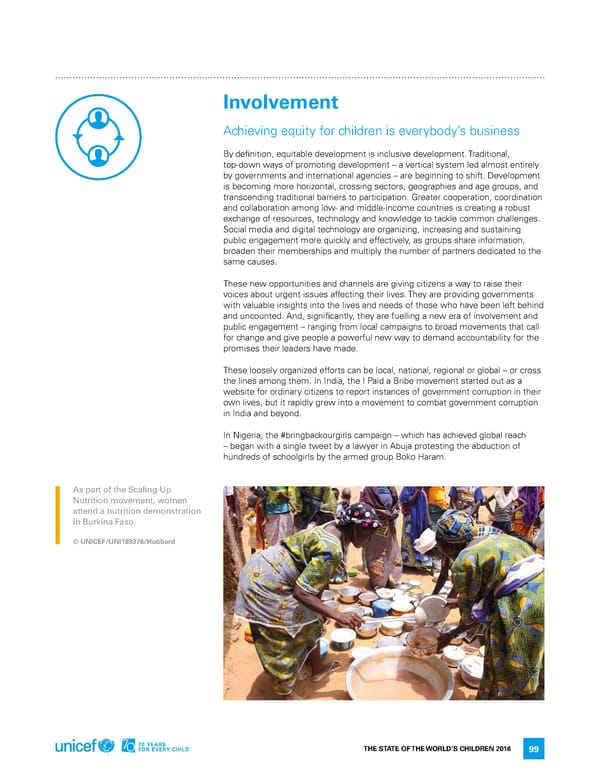Involvement achieving equity for children is everybody’s business By definition, equitable development is inclusive development. Traditional, top-down ways of promoting development – a vertical system led almost entirely by governments and international agencies – are beginning to shift. development is becoming more horizontal, crossing sectors, geographies and age groups, and transcending traditional barriers to participation. Greater cooperation, coordination and collaboration among low- and middle-income countries is creating a robust exchange of resources, technology and knowledge to tackle common challenges. Social media and digital technology are organizing, increasing and sustaining public engagement more quickly and effectively, as groups share information, broaden their memberships and multiply the number of partners dedicated to the same causes. These new opportunities and channels are giving citizens a way to raise their voices about urgent issues affecting their lives. They are providing governments with valuable insights into the lives and needs of those who have been left behind and uncounted. and, significantly, they are fuelling a new era of involvement and public engagement – ranging from local campaigns to broad movements that call for change and give people a powerful new way to demand accountability for the promises their leaders have made. These loosely organized efforts can be local, national, regional or global – or cross the lines among them. in india, the i Paid a Bribe movement started out as a website for ordinary citizens to report instances of government corruption in their own lives, but it rapidly grew into a movement to combat government corruption in india and beyond. in nigeria, the #bringbackourgirls campaign – which has achieved global reach – began with a single tweet by a lawyer in abuja protesting the abduction of hundreds of schoolgirls by the armed group Boko haram. As part of the Scaling Up Nutrition movement, women attend a nutrition demonstration in Burkina Faso. © UNICEF/UNI189376/Hubbard The STaTe of The World’S Children 2016 99
 70 Years for Every Child Page 116 Page 118
70 Years for Every Child Page 116 Page 118